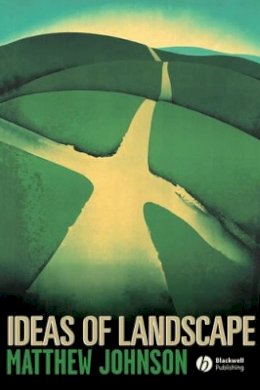
Stock image for illustration purposes only - book cover, edition or condition may vary.
Ideas of Landscape
Matthew Johnson
€ 44.77
FREE Delivery in Ireland
Description for Ideas of Landscape
Paperback. * The first historical assessment of a critical period in archaeology * Takes as its focus the so-called English landscape tradition -- the ideological underpinnings of which come from English Romanticism, via the influence of the "father of landscape history": W.G. Num Pages: 264 pages, 34 illustrations. BIC Classification: HD. Category: (P) Professional & Vocational. Dimension: 228 x 154 x 15. Weight in Grams: 388.
Ideas of Landscape discusses the current theory and practice of landscape archaeology and offers an alternative agenda for landscape archaeology that maps more closely onto the established empirical strengths of landscape study and has more contemporary relevance.
- The first historical assessment of a critical period in archaeology
- Takes as its focus the so-called English landscape tradition -- the ideological underpinnings of which come from English Romanticism, via the influence of the “father of landscape history”: W. G. Hoskins
- Argues that the strengths and weaknesses of landscape archaeology can be traced back to the underlying theoretical discontents of Romanticism
- Offers an alternative agenda for ... Read more
Product Details
Format
Paperback
Publication date
2006
Publisher
John Wiley and Sons Ltd
Number of pages
264
Condition
New
Number of Pages
272
Place of Publication
Hoboken, United Kingdom
ISBN
9781405101608
SKU
V9781405101608
Shipping Time
Usually ships in 7 to 11 working days
Ref
99-1
About Matthew Johnson
Matthew Johnson is Professor of Archaeology, University of Southampton, and author of Behind the Castle Gate (2002), Archaeological Theory: An Introduction (Blackwell, 1999), An Archaeology of Capitalism (Blackwell, 1996), and Housing Culture (1993).
Reviews for Ideas of Landscape
"I read Matthew Johnson's Ideas of Landscape (Blackwell) with intense interest. It discusses the theory and practice of landscape archaeology and the Romantic English landscape tradition, boldly taking on received opinion about figures such as Wordsworth and WG Hoskins, and making us think hard about what we can know about the past, why we want to know it, and how ... Read more
